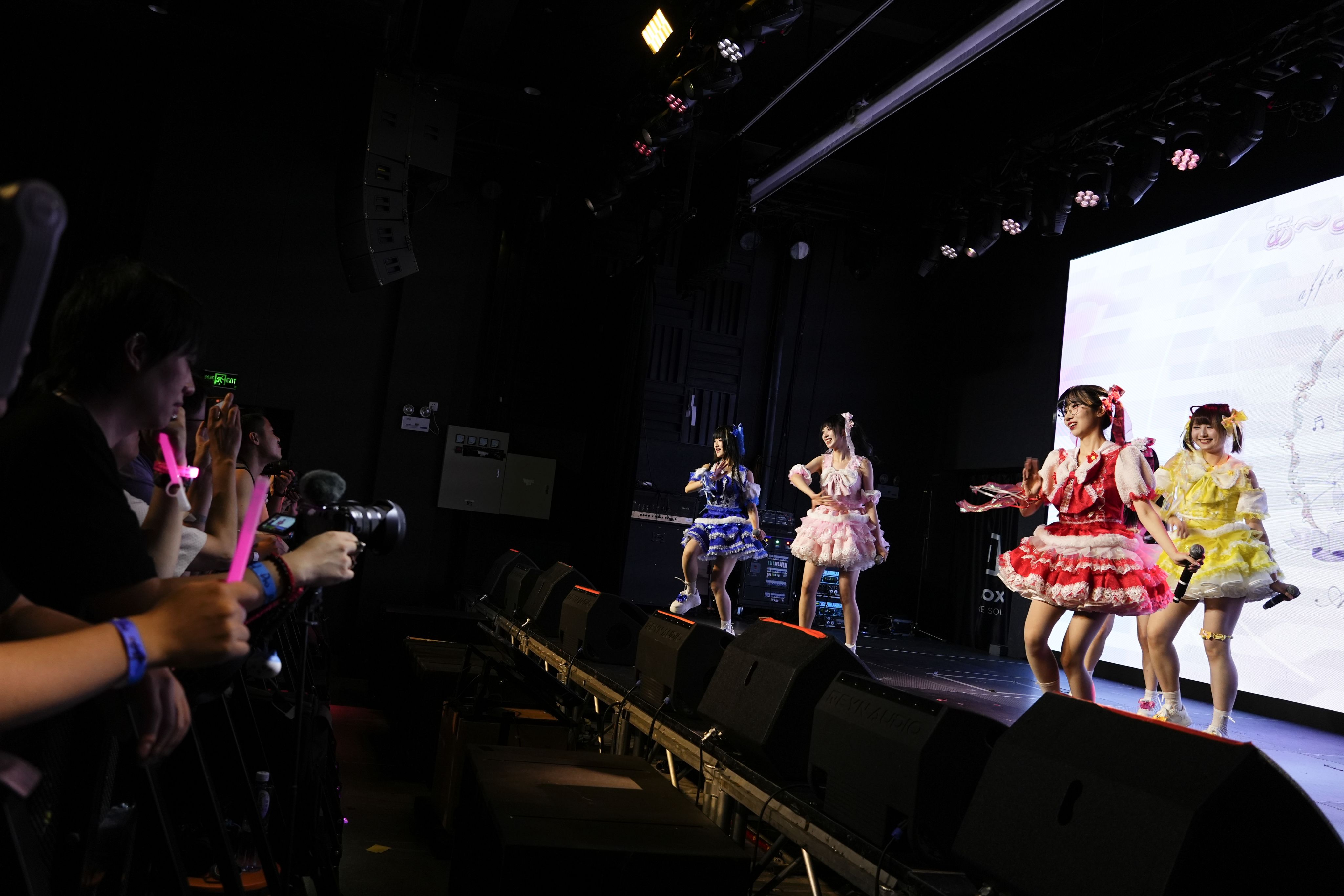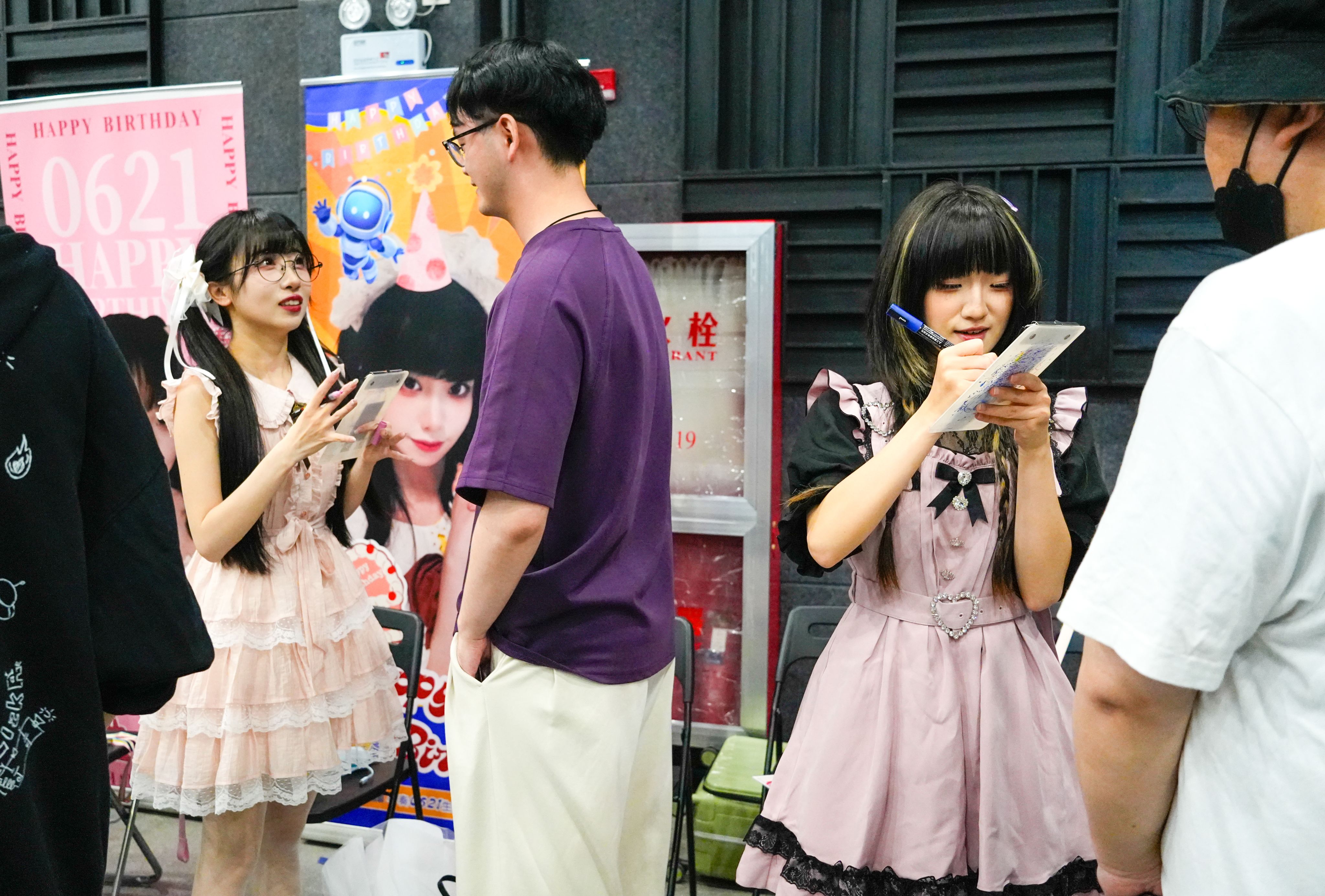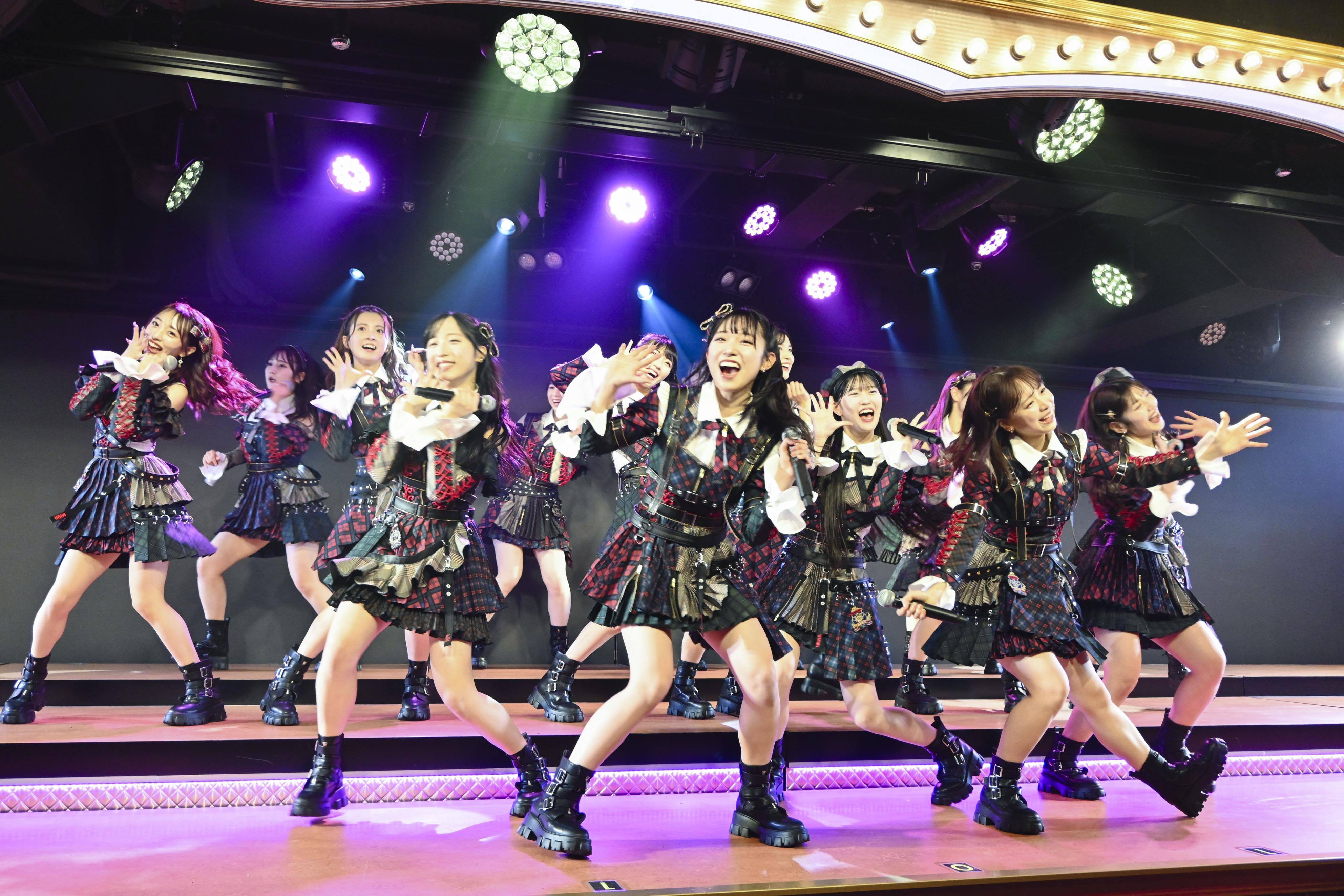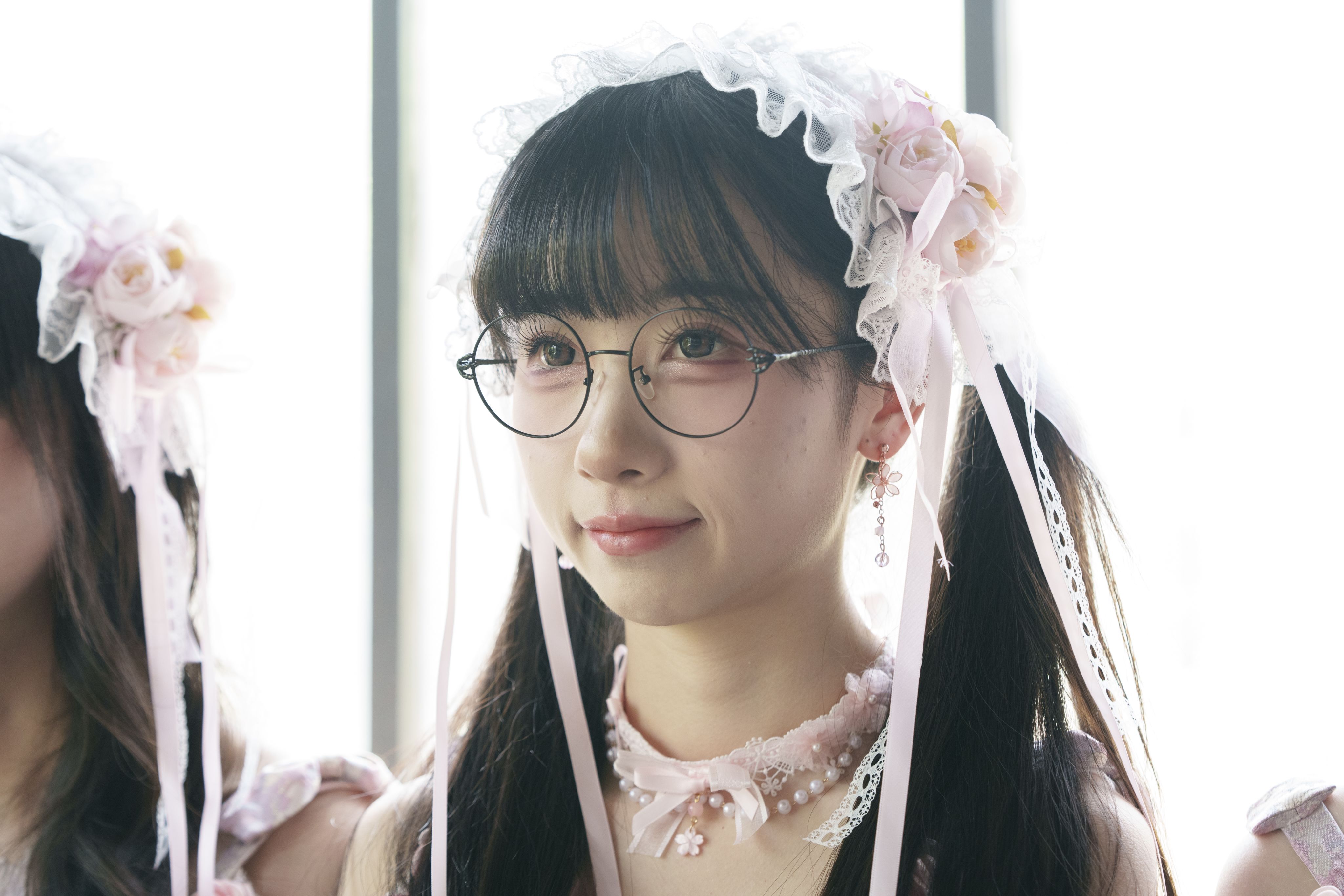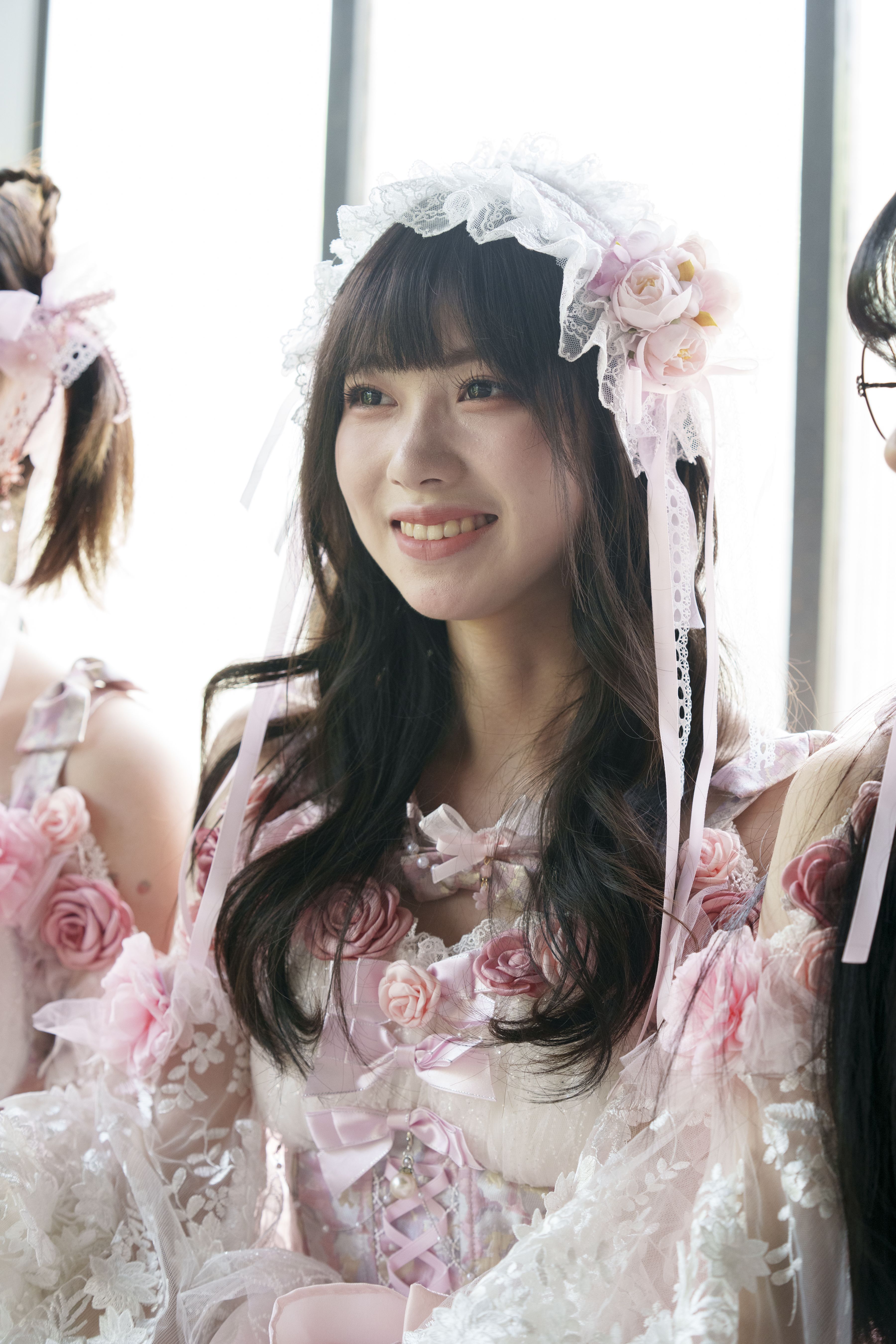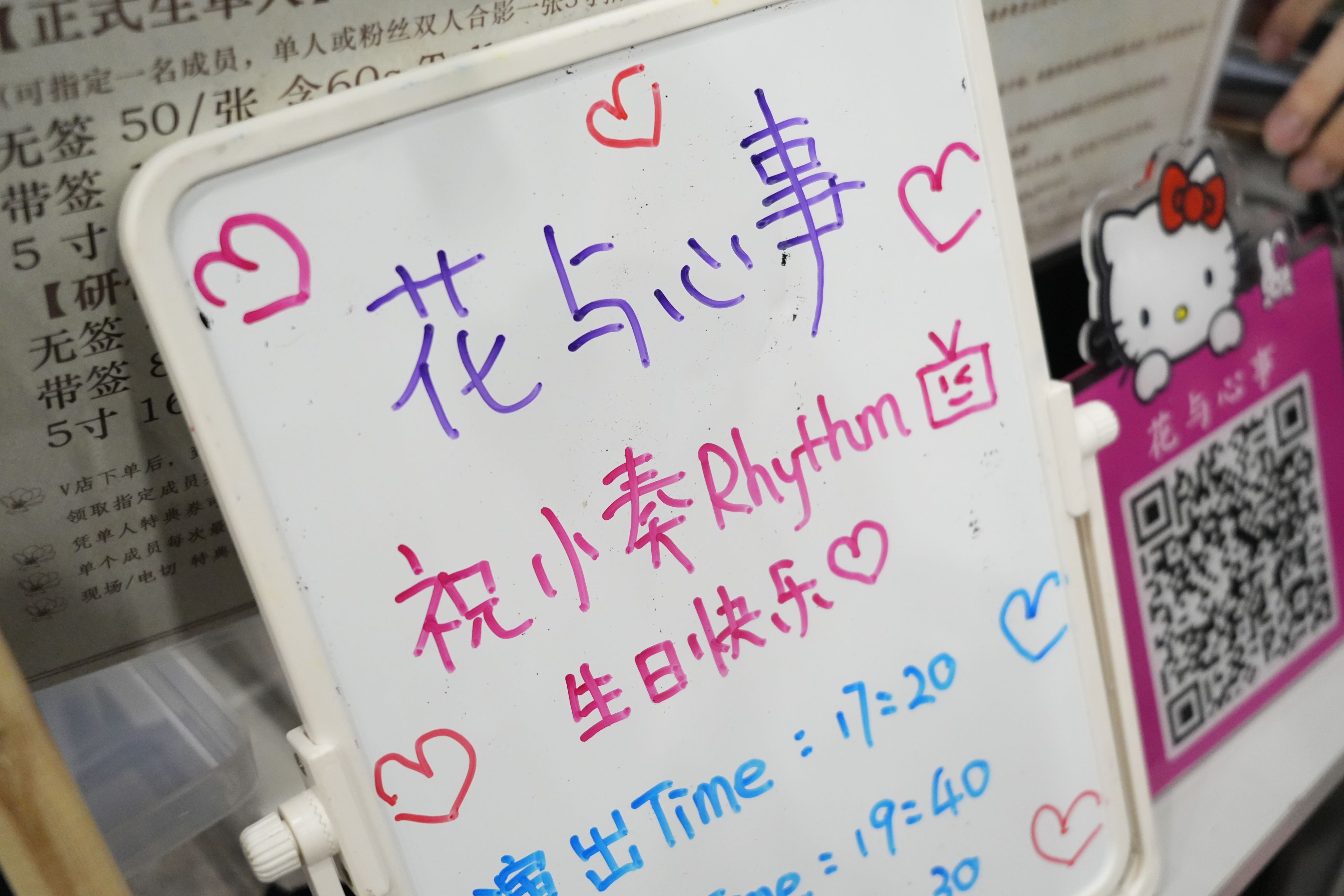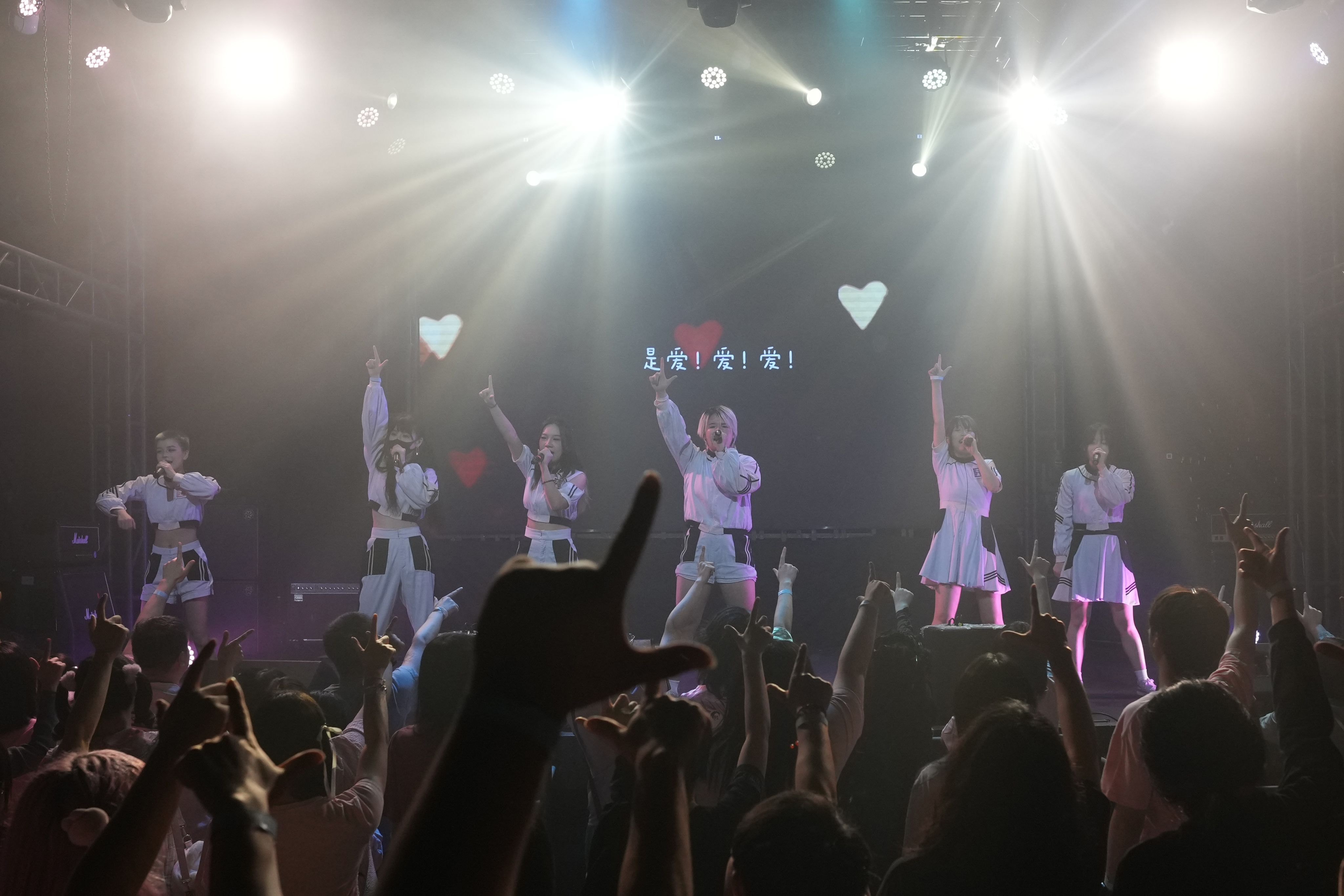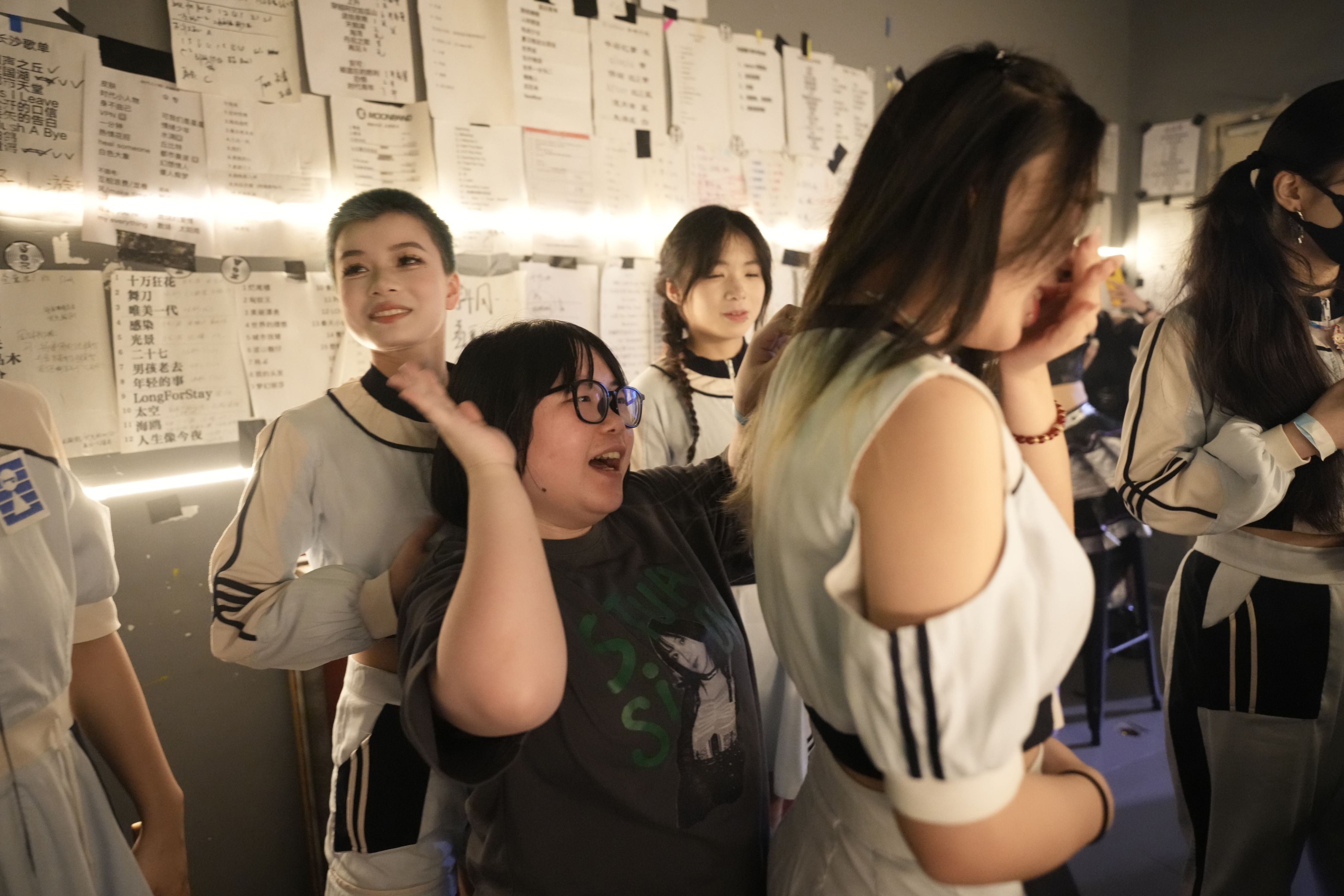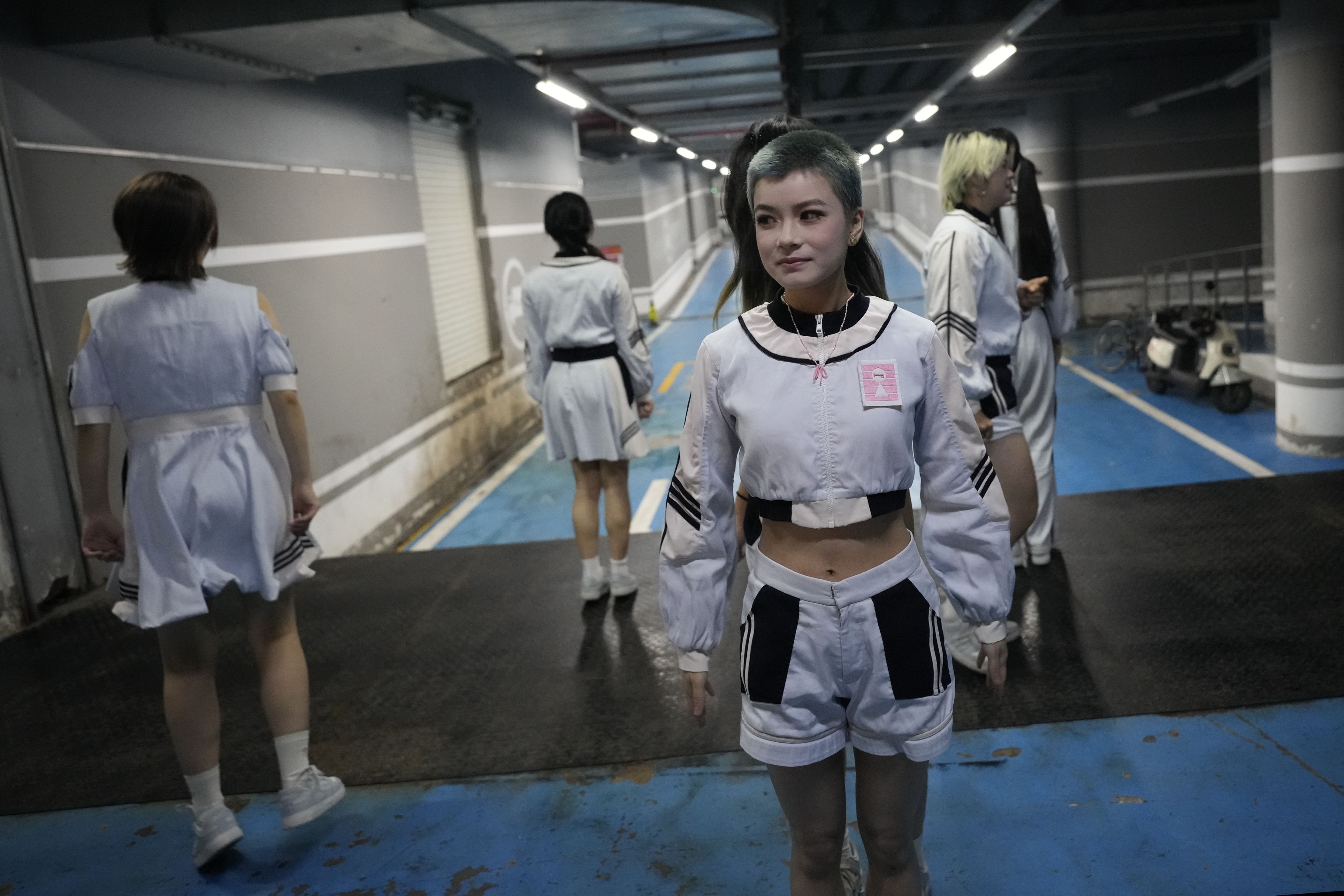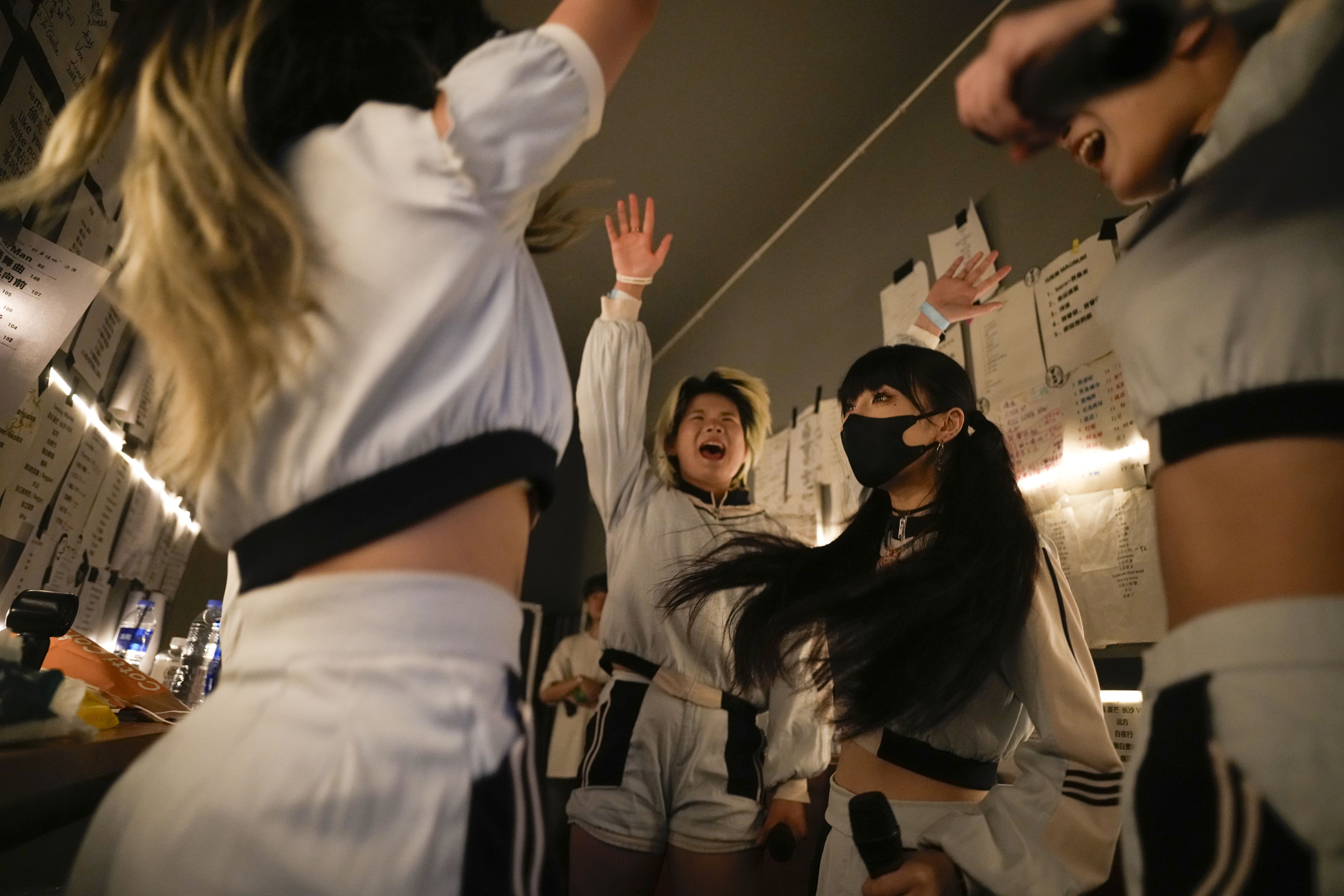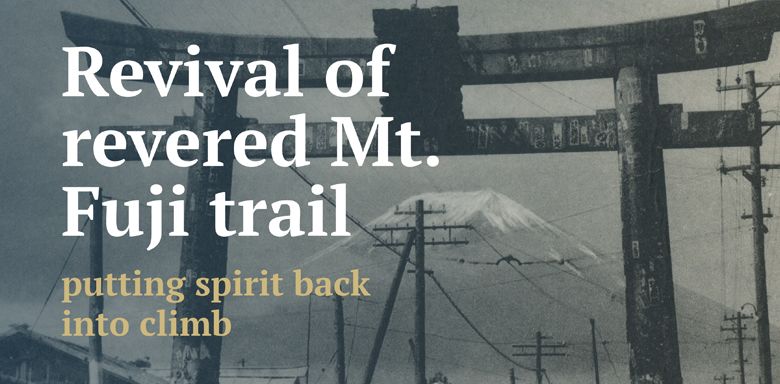Japanese underground idol culture booming in China

At a club in Shanghai, dozens of young people are jumping and waving glow sticks as they dance to the music, leaning in as if to touch the performers on stage. They're Chinese amateur girl groups singing in Japanese, and this is Japan's globalized idol culture.
About 20 Chinese idol groups wearing colorful frilly dresses and Lolita-style outfits performed at a recent weekend music event. The emcees sometimes called out to the crowd in Japanese, with shouts of "se-no" ("All together now!") or "arigato-gozaimashita" ("Thank you very much!").
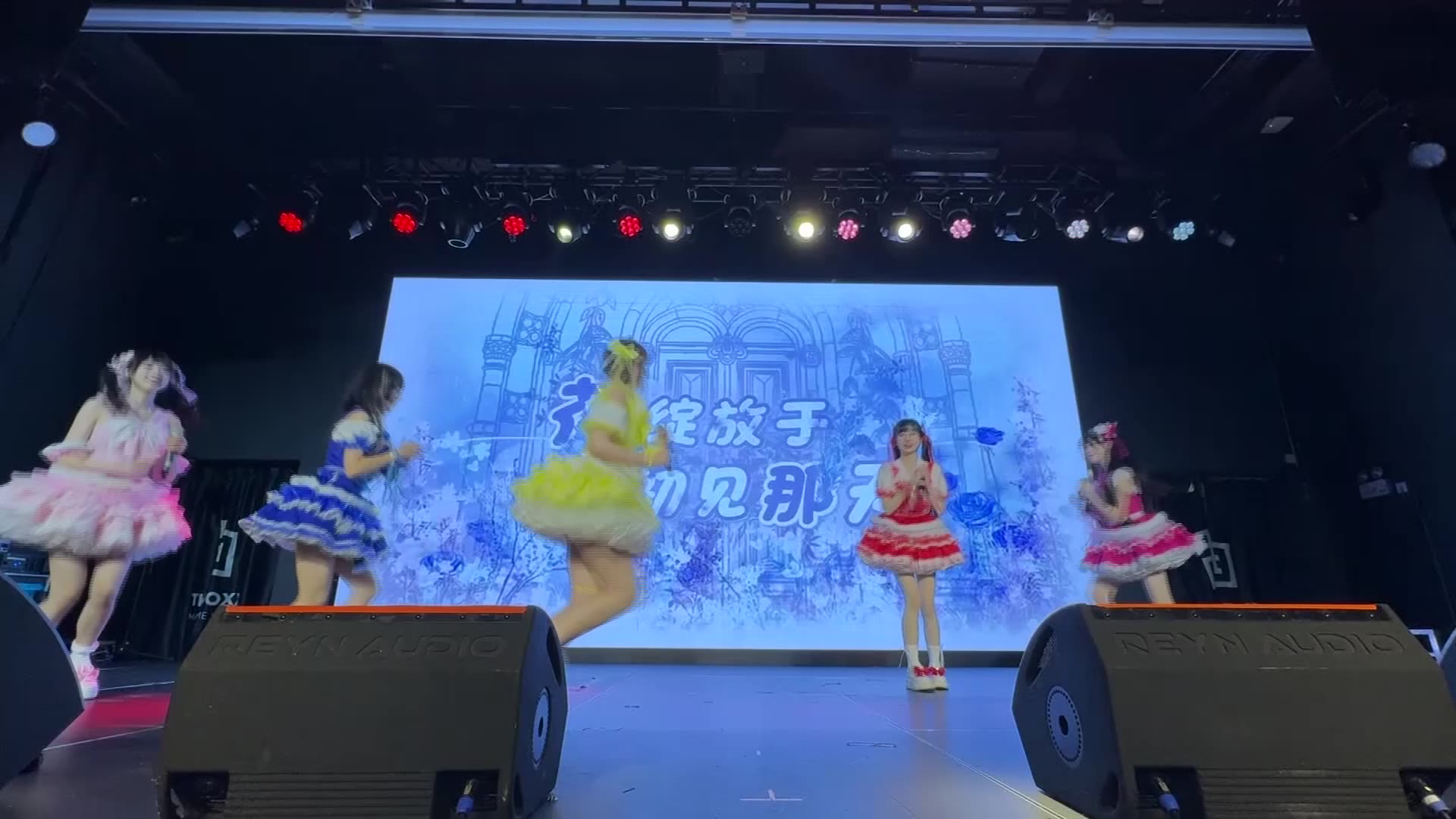
After the show, fans lined up to chat with the idols at the venue's booths. These meet-and-greet sessions are called "perks meetings."
The paid service lets fans take pictures with the idols, get autographs, and chat with the girls for a few minutes. An autographed photo and a two-minute chat costs 100 yuan ($14).
According to Chinese media, the number of underground idol groups in the country has skyrocketed since the end of pandemic restrictions, from about 40 in 2023 to over 250 in March this year.
A male fan of the idol group "Affloret" gave his favorite group member, Rhythm, a flower bouquet for her birthday.
"I really love her and have been watching her grow. I hope she becomes the No. 1 idol in China," said the man, who wore a black vest with the Chinese message: "I only watch Rhythm."
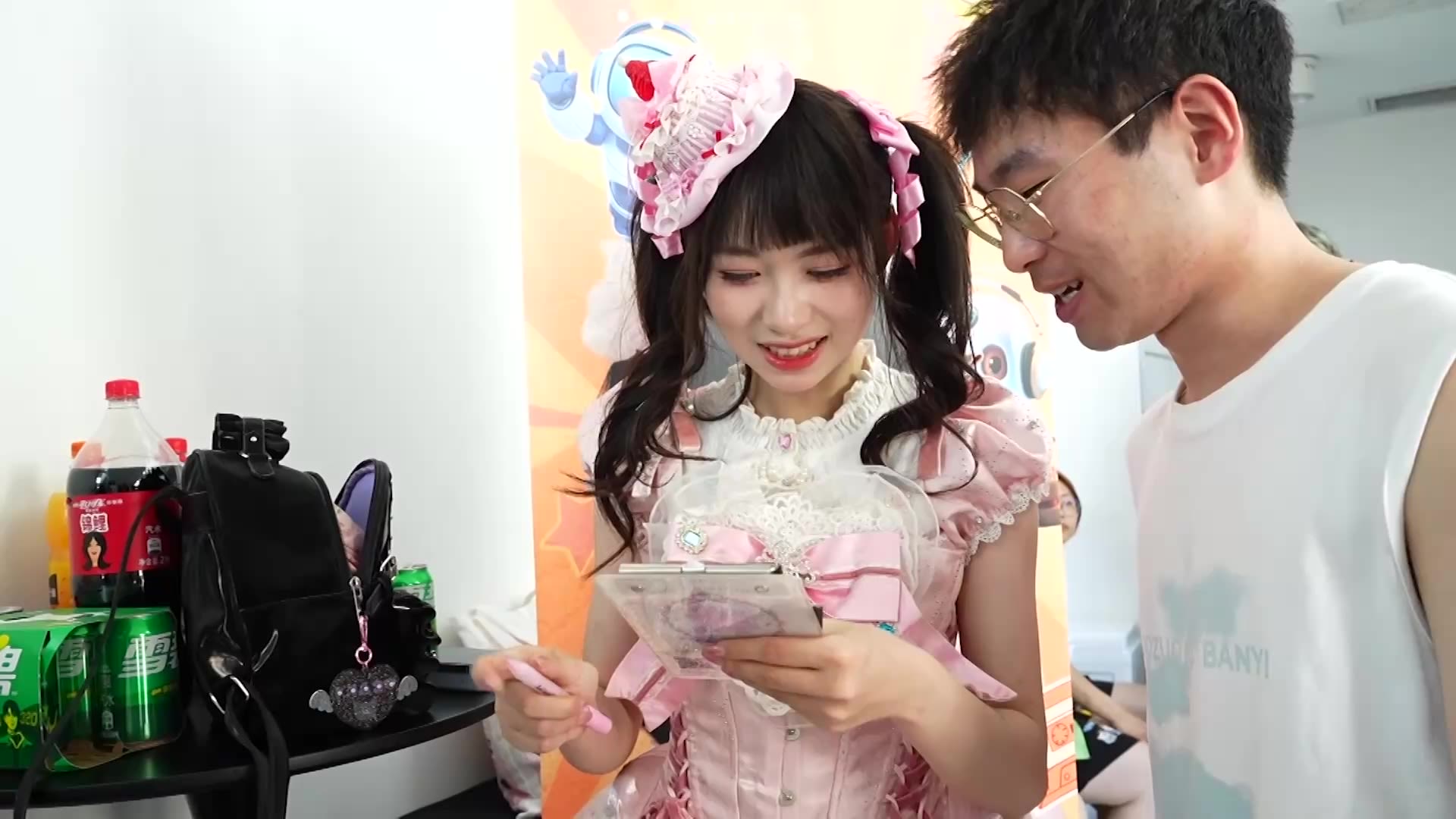
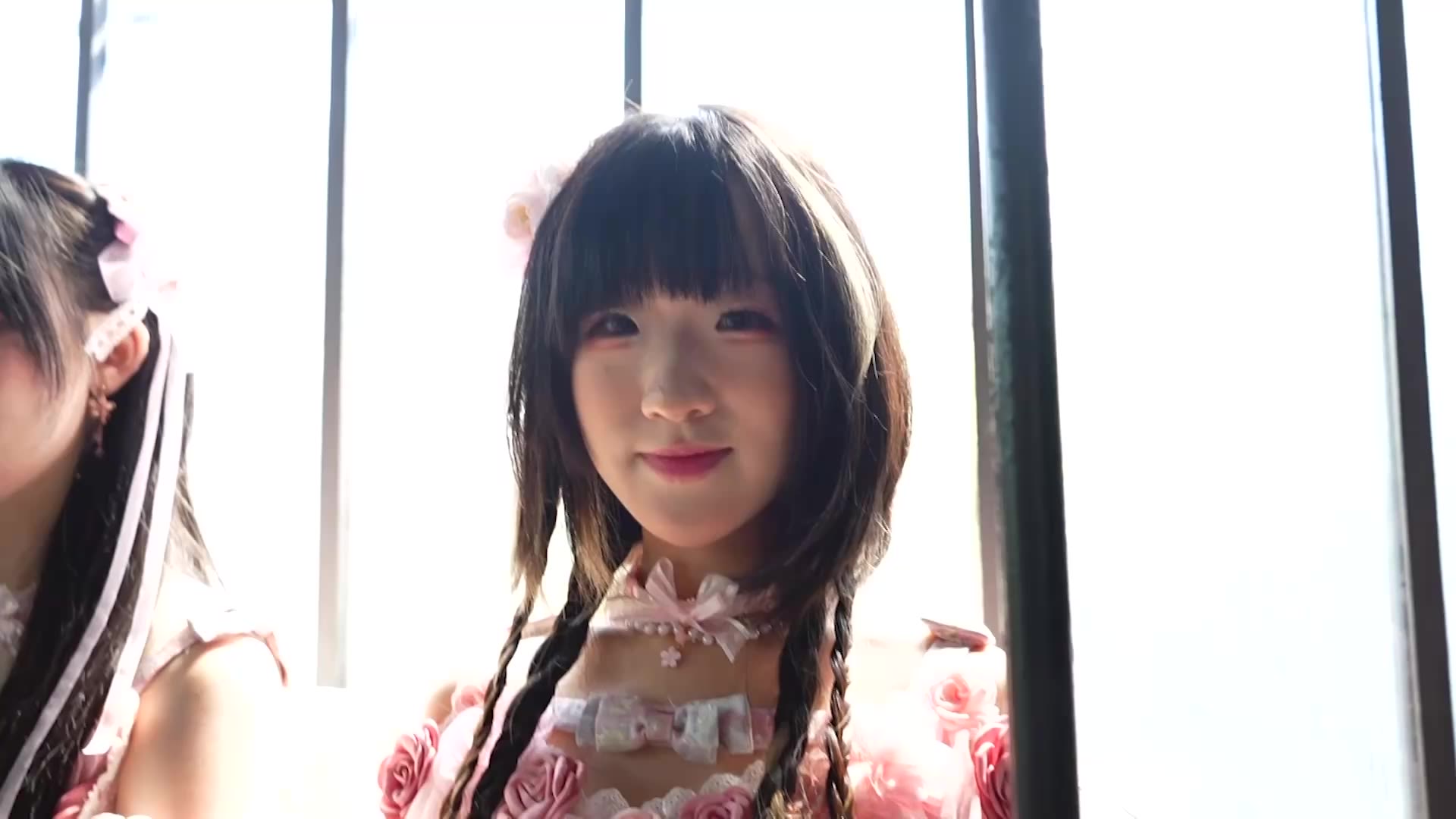
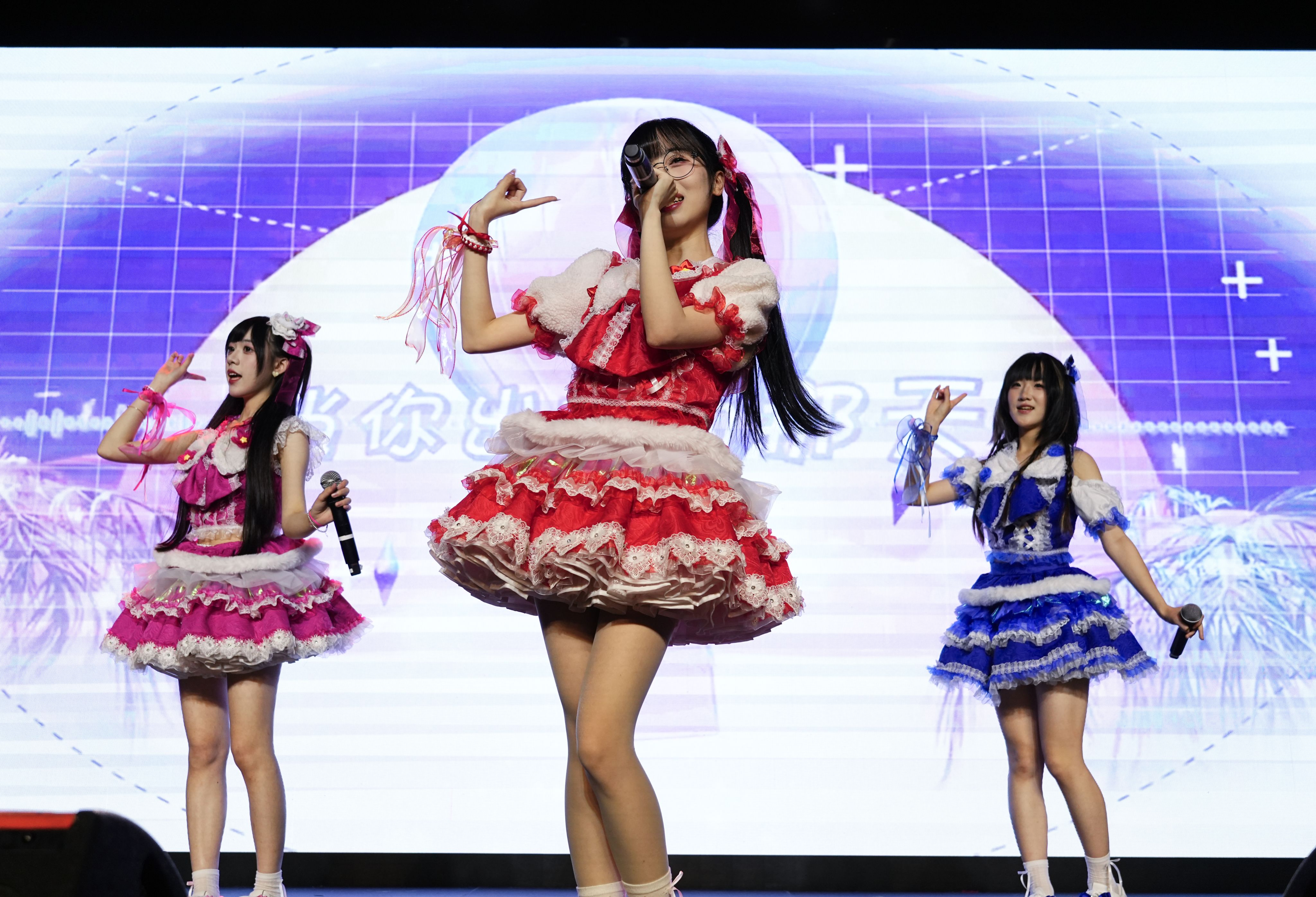
The producers of Affloret, which was set up in China's biggest business hub in June last year, include people who worked at AKB48 Team SH, the Shanghai branch of Japan's famous all-girl idol group AKB48.
Members of AKB48 perform at their refurbished theater in Tokyo's Akihabara districted on Dec. 8, 2024. (Kyodo)
Members of AKB48 perform at their refurbished theater in Tokyo's Akihabara districted on Dec. 8, 2024. (Kyodo)
Since AKB48 started in 2005, it has operated under the concept of "idols that fans can casually meet" through "handshake" meet-and-greet paid events at venues including a Tokyo theater dedicated to the group.
Of the six women in Affloret, only Nayuyu is a full-time idol. The others are either college students or work part-time in the entertainment industry aside from their main jobs.
Rhythm said in an interview that she feels "very happy and blessed" on stage and that it is great to be able to share her emotions with fans who often reciprocate with a feeling "full of energy" after watching her performances.
The group members, who were chosen from about 100 candidates, sing in both Japanese and Chinese, even though Nayuyu says Japanese pronunciation is hard since most of the members have not really studied the language.
Being passionate and enthusiastic about becoming an idol is more important than talent, an Affloret producer said.
Even though Affloret has over 100,000 fans who follow their online content and social media, the group's main source of revenue is offline -- event tickets and meet-ups.
The Affloret members said they look up to Japanese underground idol groups like AIBECK and iLIFE as role models and hope to perform with them in Japan.
A Japanese man in his 40s who lives in Shanghai and follows Chinese idols said he thinks the biggest difference between Japanese and Chinese entertainment cultures is the distance between the fans and performers.
"In Japan, there are strict rules and fans must keep a certain distance from idols, but here the atmosphere is more relaxed, allowing fans to chat with the performers more intimately," he said.
Unlike a lot of Japanese groups that are made up of teenagers, most of the Chinese idols are adults who get into show business for a limited time, according to the Japanese fan.
A lot of members "graduate" or quit after a year or so, presumably because Chinese youth are under more pressure to find stable jobs.
The man said he got into Chinese underground idols after seeing a live performance by a group called Transparent Classroom and Parallel Girls from Changsha, Hunan Province, in 2019.
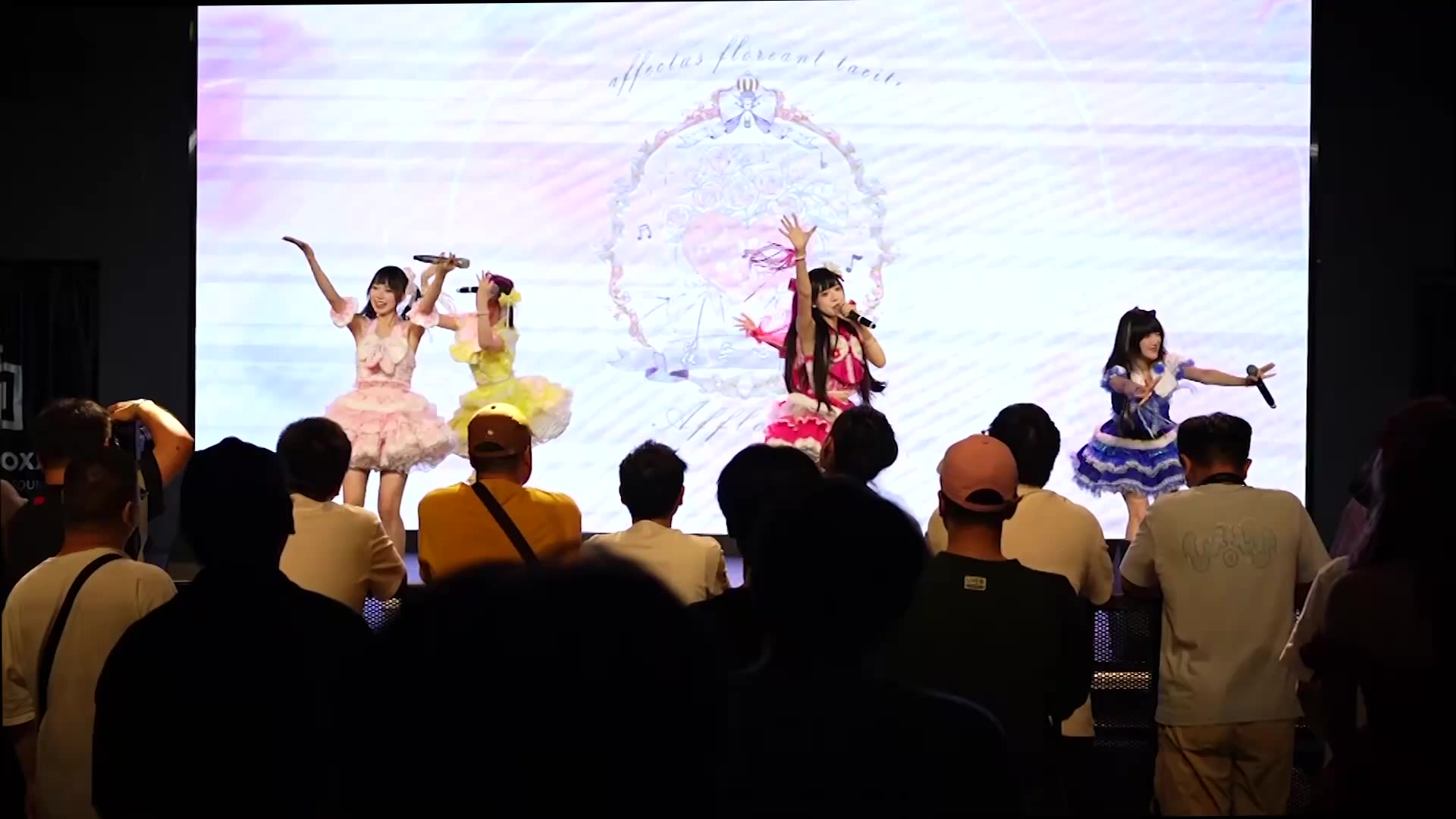


The six members of the Changsha idol group are unique. They sing original songs in various genres, including rock and punk, in Chinese. This is different from the groups classified as mainstream idols, which try to evoke feelings of "moe," or enchantment with cute and innocent characters.
Zhao Beichen, 31, the producer of Transparent Classroom, is known in the Chinese media as the "godmother of Chinese underground idols." After a live performance in Changsha in May, she explained that she wants to nurture "alternative" performers who are "not perfect" and can be seen as "unsophisticated."
Zhao researched Japanese underground idols for her thesis at Meiji University in Tokyo, attended concerts by amateur groups and worked at an idol talent agency while she was in Japan.
"China's got a huge population base, so no matter how niche the genre is, there'll always be a market as long as there are people who like it," Zhao said. "I think it'll be easier to get underground idol groups together in China than in Japan because the culture here isn't as developed."
Zhao said she has never thought about having her group sing Japanese songs because the members cannot speak the language.
"Underground idols should be diverse and inclusive, like a hodgepodge," she said, adding that the industry is "fun because it is based on grassroots."
Text : Maya Kaneko
Photo : Ken Ishii, Suo Takekuma
Video : Ken Ishii, Masafumi Sugita
Text editor : David Hueston
Production Support : Kevin Chow, Yuki Murayama
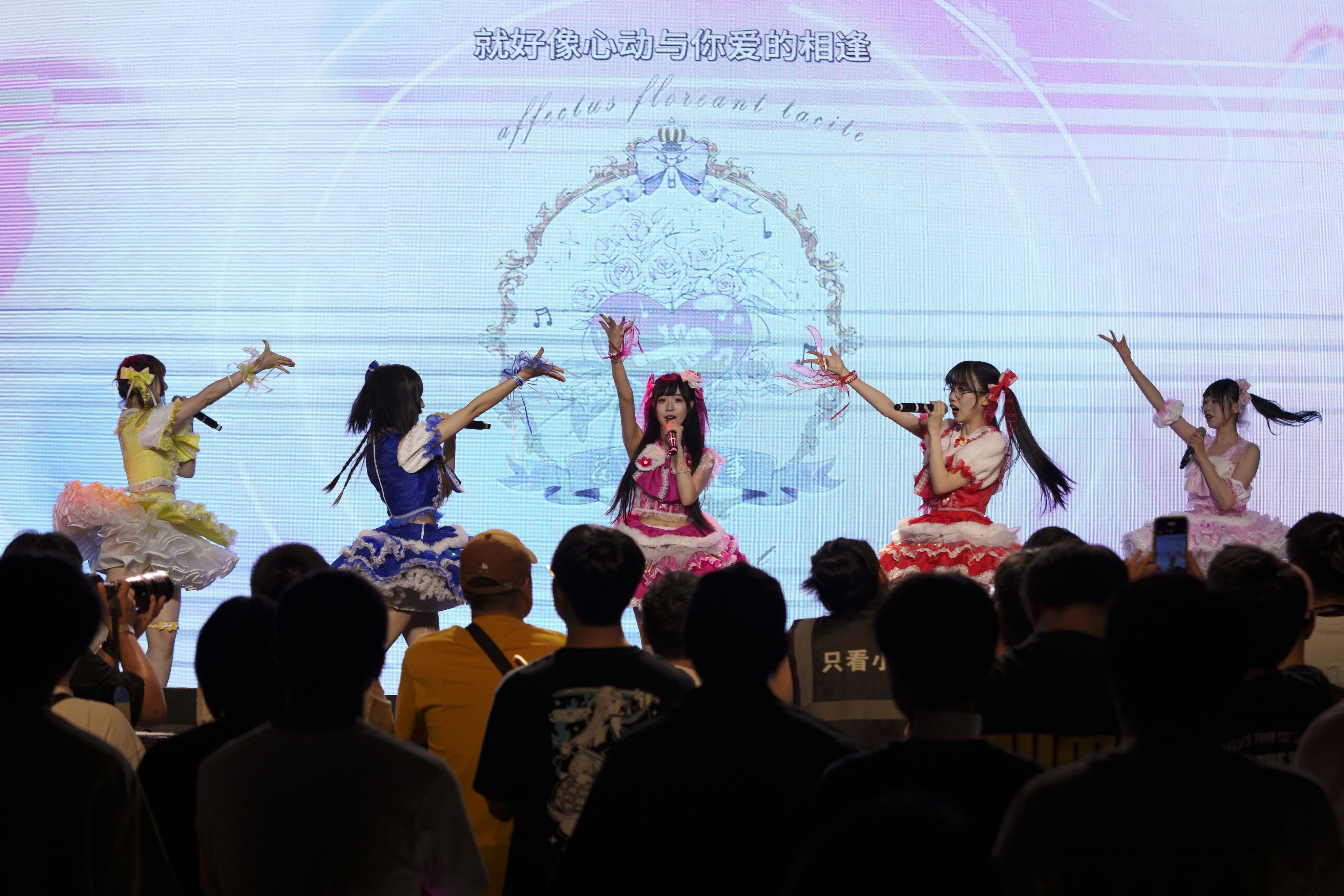
Other Spotlight Japan Stories
Wartime child worker reveals dark secrets of Japan's "Rabbit Island"
Okunoshima has become famous globally as Japan's Instagrammable "Rabbit Island" but little is known about its dark history as a host to a wartime poison gas factory and weapons plant.
Wartime child worker reveals dark secrets of Japan's "Rabbit Island"
Okunoshima has become famous globally as Japan's Instagrammable "Rabbit Island" but little is known about its dark history as a host to a wartime poison gas factory and weapons plant.
Revival of revered Mt. Fuji trail
putting spirit back into climb
Gripped by summit fever, many Mt. Fuji climbers head straight to the mountain’s 5th stations to pick up trails to the top, leaving a once revered route largely forgotten.
Matcha's moment in peril as Trump tariff threat looms over industry
Abreeze carries murmurs and quiet laughter between the rows of bright green tea leaves that are growing in dappled shade as workers harvest the plants that are destined to become matcha.
The Company uses Google Analytics, an access analysis tool provided by Google. Google Analytics uses cookies to track use of the Service. (Client ID / IP address / Viewing page URL / Referrer / Device type / Operating system / Browser type / Language /Screen resolution) Users can prevent Google Analytics, as used by the Company, from tracking their use of the Service by downloading and installing the Google Analytics opt-out add-on provided by Google, and changing the add-on settings on their browser. (https://tools.google.com/dlpage/gaoptout) For more information about how Google handles collected data: Google Analytics Terms of Service (https://policies.google.com/technologies/cookies?hl=en#types-of-cookies) Google Privacy & Terms(https://policies.google.com/privacy)
© Kyodo News. All Rights Reserved. No reproduction or republication without written permission.

